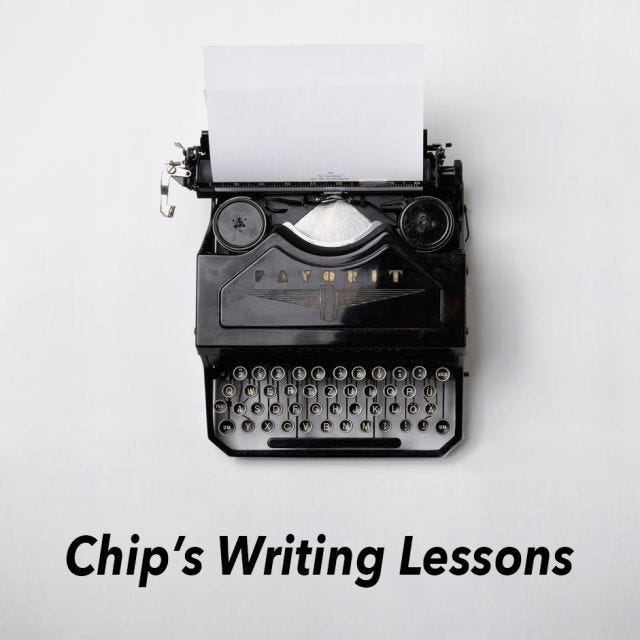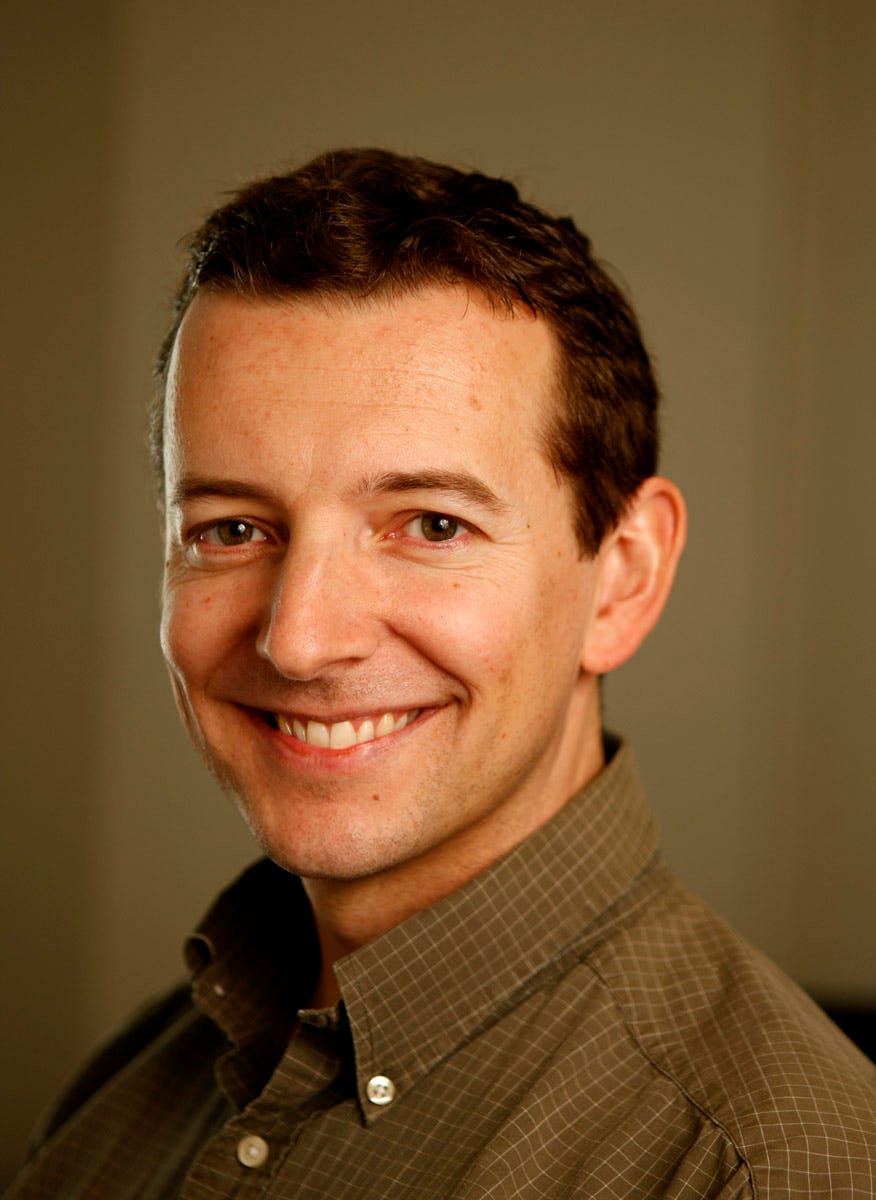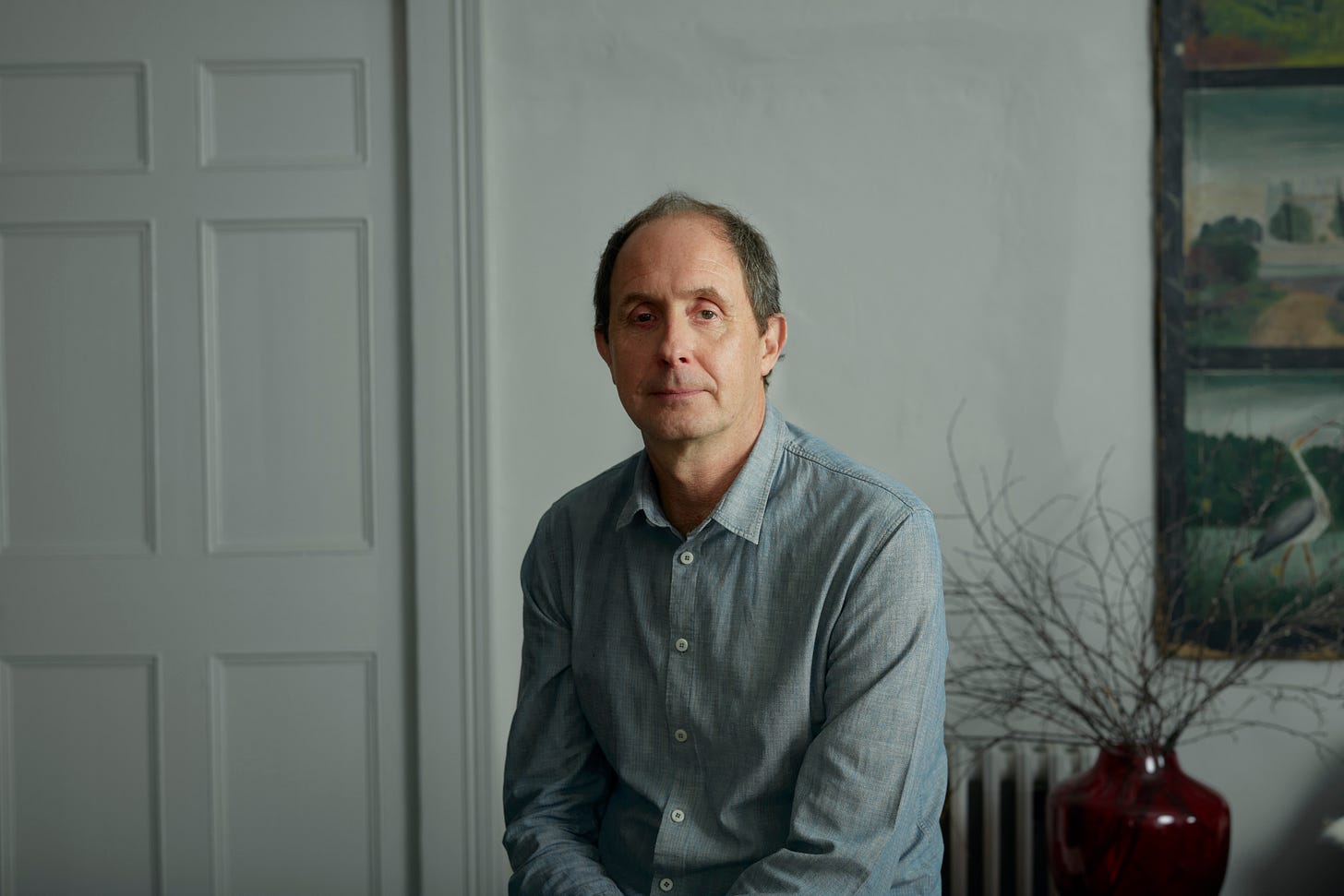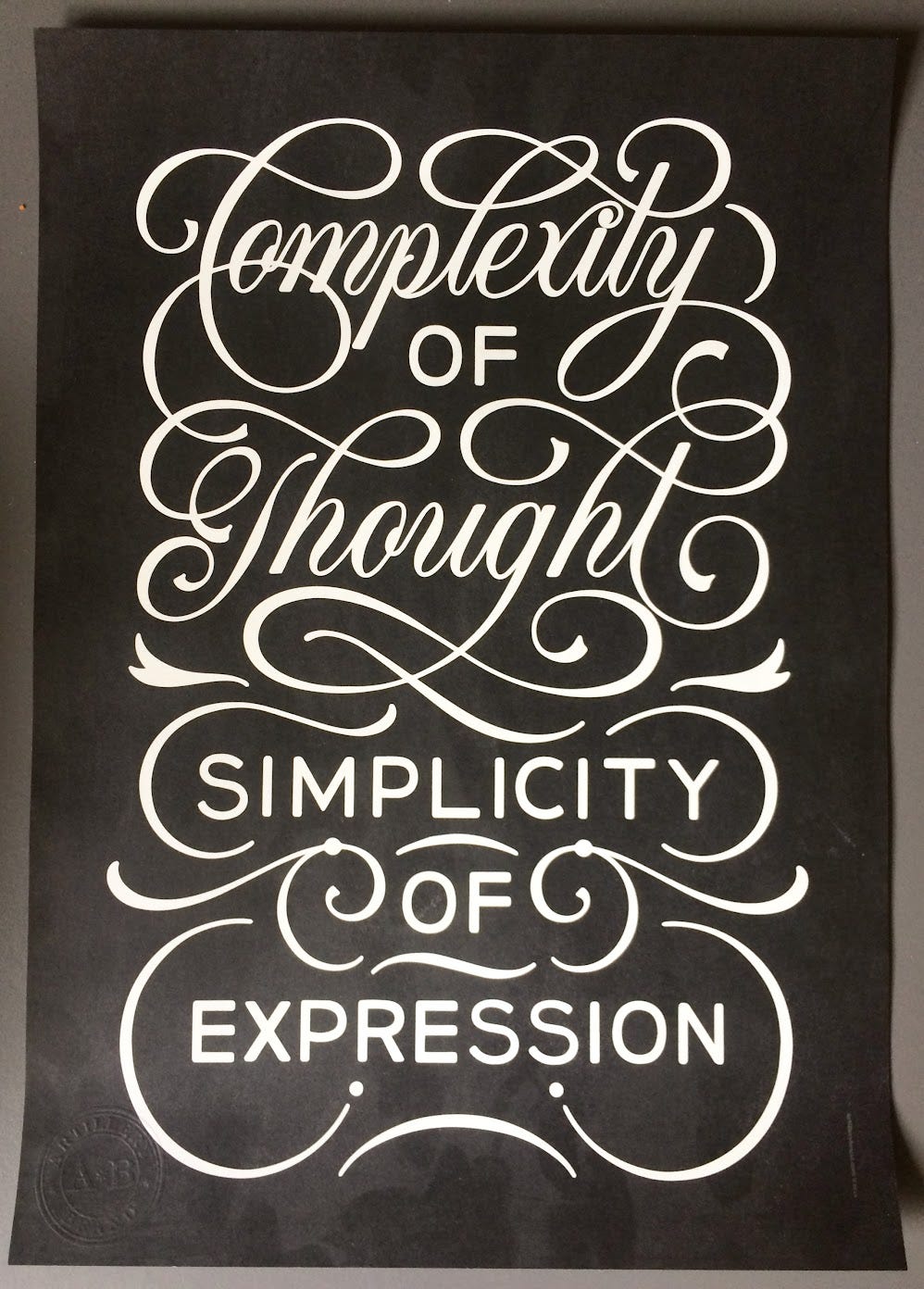Chip's Writing Lessons #82
Newsletter
In this issue:
Writers Speak: Alexander Cheves on a memoir
Interview: 4 Questions with Christopher Goffard
Interview Extra: 4 Questions with Philip Watson
WRITERS SPEAK: Alexander Cheves of memoir
“Organize essays in chronological order and voila, you have a memoir.”
— Alexander Cheves
INTERVIEW: 4 QUESTIONS WITH CHRISTOPHER GOFFARD
Christopher Goffard is an author and a staff writer for the Los Angeles Times. He shared the 2011 Pulitzer Prize for the paper’s Bell coverage and has twice been a Pulitzer finalist for feature writing, in 2007 and 2014. His novel “Snitch Jacket” was a finalist for the Edgar Allan Poe Award for Best First Novel. His book “You Will See Fire: A Search for Justice in Kenya,” based on his Times series, was published in 2011. His podcast “Dirty John” has been downloaded more than 50 million times and was turned into a TV series. His most recent podcast, “Detective Trapp,” reached No. 1 on the podcast charts in late 2019. His stories are collected in “Dirty John and Other True Stories of Outlaws and Outsiders,” published by Simon & Schuster.
What's the most important lesson you've learned as a writer?
You’ve got to keep moving and avoid pigeonholes and the temptation to repeat yourself. Once you’ve become known for a certain type of story, people want you to do it again and again, and that’s a kind of death. It’s way better to crash and burn trying something original than it is to succeed with stories you can do in your sleep.
What has been the biggest surprise of your writing life?
Probably that I’ve been able to do a lot at newspapers that I thought I’d have to leave newspapers to do — that I’ve been able to make a living telling nontraditional stories with the kind of length and structure that I used to associate mostly with magazines and/or fiction. Recently I’ve been doing podcasts that are basically nonfiction radio serials (marrying narrative journalism to the medium of Mercury Theatre On the Air and other shows I loved as a kid). Never thought that would happen or was even possible.
If you had to use a metaphor to describe yourself as a writer, what would it be?
A woodworker who has to wander and scrounge and forage for the right pieces of timber and then figure out how they all might fit together. Once in a while if you’re lucky like old Geppetto something weird and unexplainable visits your shop. Maybe life visits.
What’s the best piece of writing advice anyone ever gave you?
It was very early in my career. An editor named Steve Marble told me, “Sometimes it’s better to use a scalpel, and not a sledgehammer.” If you grow up on Marvel comics, you learn that people speak in bolded all-caps to make a point, with multiple exclamation points. It’s easy to find journalistic equivalents every day. So Steve was cautioning me against overwriting. It was a way of saying that subtler is better.
INTERVIEW: 4 QUESTIONS WITH PHILIP WATSON
Photograph by Bríd O’Donovan
Philip Watson is an experienced journalist who has written articles on a wide variety of subjects. His in-depth features range from 9/11 to the Poker Million tournament, fathers’ rights to Chernobyl children, Miles Davis to (a film version of) James Joyce’s Ulysses, and British soldiers injured in Afghanistan to the Peace One Day campaign.
Interviews and profiles extend from Martin Scorsese to Kate Beckinsale, Elvis Costello to D’Angelo, conman “King Con” to Ryanair boss Michael O’Leary, and maverick British inventor James Dyson to radical American comic Lenny Bruce.
Philip worked for a number of years at GQ, where he was deputy editor, and Esquire, where he was editor-at-large. He has been freelance for the past decade or more, contributing articles and features to many publications in Britain, Ireland and the US, including the Telegraph Magazine, Guardian, Sunday Times, Observer, Irish Times, London Evening Standard, Travel + Leisure and music magazine The Wire.
Philip has also appeared on radio and television programs in the UK and Ireland, including RTÉ arts review show The Works. He is the editor of More Than a Game: GQ on Sport (Orion) and a collection of his interviews with musicians features in the anthology Invisible Jukebox (Quartet). His biography of the American guitarist Bill Frisell, Beautiful Dreamer, was published by Faber in the spring of 2022.
What is the most important lesson you've learned as a writer?
Dogged determination and stubborn persistence. A lot of amazing things can happen inside your head when you’re walking or meditating or dreaming. But you can only write if your bum is in a seat (or similar) somewhere.
I remember the Irish writer Kevin Barry once being asked whether he believed in the presence of the Muse. He said he didn’t know, but that, if she did exist, she is a decidedly fickle and capricious creature, that you never knew if and when the Muse might visit you and for how long, and that there are often days in which the inspiration is lacking and the writing is all failure and frustration.
The one thing he did know for certain, however, was that she couldn’t look down on you with any degree of compassion or goodwill unless you were actually there at the table or computer, ready to receive her.
What has been the biggest surprise of your writing life?
I always hoped (and secretly believed) that my biography of the American guitarist Bill Frisell would get published somehow, somewhere. But after the requisite ample amount of rejection letters, I was beginning to have serious doubts.
So … for Bill Frisell, Beautiful Dreamer, which is my first book, to have eventually been picked up by my absolute dream publisher, Faber; to have been championed so brilliantly by such a passionate, knowledgeable and rigorous editor, Alexa von Hirschberg; and to have received such a wide range of favorable reviews, in the UK and US — are continuing sources of amazement.
If you had to use a metaphor to describe yourself as a writer, what would it be and why?
It sounds somewhat prosaic, as I write it, but I’m sort of like one of those huge, relentless tunnel-boring machines, or “moles”: I just keep going until I see the light at the other end. Then, when it’s complete, I hope some person or another might wonder at its form, structure (and maybe even beauty), and how it all possibly could have been done.
What is the best writing advice anyone ever gave you?
Here are two for the price of one. The first was not exactly given to me personally; it was offered up as a general piece of writing advice by the great English novelist Ian McEwan to an audience at a book festival in Ireland, where I live. He was discussing the idea that some writing doesn’t work because it’s trying too hard — the writer is too fearful or self-conscious of the process, and the words can feel heavy, tight and overworked. “Relax onto the page,” was McEwan’s sage advice. Lightness of touch is a never-ending struggle and ambition.
The second was said to me when, as a fledgling journalist, I had a brief stint on the arts desk at the Guardian. I find this hard to believe now, but my precocious younger self had the temerity to ask one of the paper’s senior arts writers, estimable theatre critic Michael Billington, what is the secret of good arts journalism. “Complexity of thought, simplicity of expression,” he replied, quick as a flash. They have been my watchwords, especially when faced with the challenge of writing about music, ever since. A friend of mine, the late, brilliant creative director and copywriter Eoghan Nolan, liked the saying so much he had it made into a poster.





Complexity of thought, simplicity of expression. What a brilliant piece of advice.